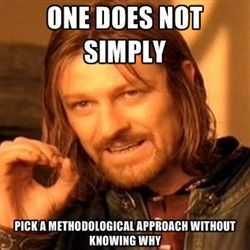From Lars Syll Between 1920 and 1950, a debate took place which defined the future of economics in the second half of the 20th century. On one side were John Maynard Keynes and Frank Knight; on the other, Frank Ramsey and Jimmie Savage. Knight and Keynes believed in the ubiquity of “radical uncertainty”. Not only did we not know what was going to happen, we had a very limited ability to even describe the things that might happen. They distinguished risk, which could be described with the aid of probabilities, from real uncertainty—which could not. In Knight’s world, such uncertainties gave rise to the profit opportunities which were the dynamic of a capitalist economy. Keynes saw these uncertainties as at the root of the inevitable instability in such economies. Their opponents
Topics:
Lars Pålsson Syll considers the following as important: Uncategorized
This could be interesting, too:
tom writes The Ukraine war and Europe’s deepening march of folly
Stavros Mavroudeas writes CfP of Marxist Macroeconomic Modelling workgroup – 18th WAPE Forum, Istanbul August 6-8, 2025
Lars Pålsson Syll writes The pretence-of-knowledge syndrome
Dean Baker writes Crypto and Donald Trump’s strategic baseball card reserve
from Lars Syll
Between 1920 and 1950, a debate took place which defined the future of economics in the second half of the 20th century. On one side were John Maynard Keynes and Frank Knight; on the other, Frank Ramsey and Jimmie Savage.
Knight and Keynes believed in the ubiquity of “radical uncertainty”. Not only did we not know what was going to happen, we had a very limited ability to even describe the things that might happen. They distinguished risk, which could be described with the aid of probabilities, from real uncertainty—which could not. In Knight’s world, such uncertainties gave rise to the profit opportunities which were the dynamic of a capitalist economy. Keynes saw these uncertainties as at the root of the inevitable instability in such economies.
Their opponents insisted instead that all uncertainties could be described probabilistically. And their opponents won, not least because their probabilistic world was convenient: it could be described axiomatically and mathematically.
It is difficult to exaggerate the practical consequence of the outcome of that technical argument. To acknowledge the role of radical uncertainty is to knock away the foundations of finance theory and much modern macroeconomics. But the reigning consensus is beset with glaring weaknesses. Keynes and Knight were right, and their opponents wrong. And recognition of that is a necessary preliminary to the rebuilding of a more relevant economic theory.
Many economists have over time tried to diagnose what’s the problem behind the ‘intellectual poverty’ that characterizes modern mainstream economics. Kay points to the questionable reduction of uncertainty into probabilistic risk. Rationality postulates, rational expectations, market fundamentalism, general equilibrium, atomism, and over-mathematisation, are some other things one have been pointing at. But although these assumptions/axioms/practices are deeply problematic, they are mainly reflections of a deeper and more fundamental problem.
 The main problem with mainstream economics is its methodology.
The main problem with mainstream economics is its methodology.
The fixation on constructing models showing the certainty of logical entailment has been detrimental to the development of a relevant and realist economics. Insisting on formalistic (mathematical) modelling forces the economist to give upon on realism and substitute axiomatics for real-world relevance. The price for rigour and precision is far too high for anyone who is ultimately interested in using economics to pose and (hopefully) answer real-world questions and problems.
This deductivist orientation is the main reason behind the difficulty that mainstream economics has in terms of understanding, explaining and predicting what takes place in our societies. But it has also given mainstream economics much of its discursive power – at least as long as no one starts asking tough questions on the veracity of – and justification for – the assumptions on which the deductivist foundation is erected. Asking these questions is an important ingredient in a sustained critical effort at showing how nonsensical is the embellishing of a smorgasbord of models founded on wanting (often hidden) methodological foundations.
The mathematical-deductivist straitjacket used in mainstream economics presupposes atomistic closed-systems – i.e., something that we find very little of in the real world, a world significantly at odds with an (implicitly) assumed logic world where deductive entailment rules the roost. Ultimately then, the failings of modern mainstream economics have its root in a deficient ontology. The kind of formal-analytical and axiomatic-deductive mathematical modelling that makes up the core of mainstream economics is hard to make compatible with a real-world ontology. It is also the reason why so many critics find mainstream economic analysis patently and utterly unrealistic and irrelevant.
Continue Reading Radical uncertainty — a question of economic methodology…
